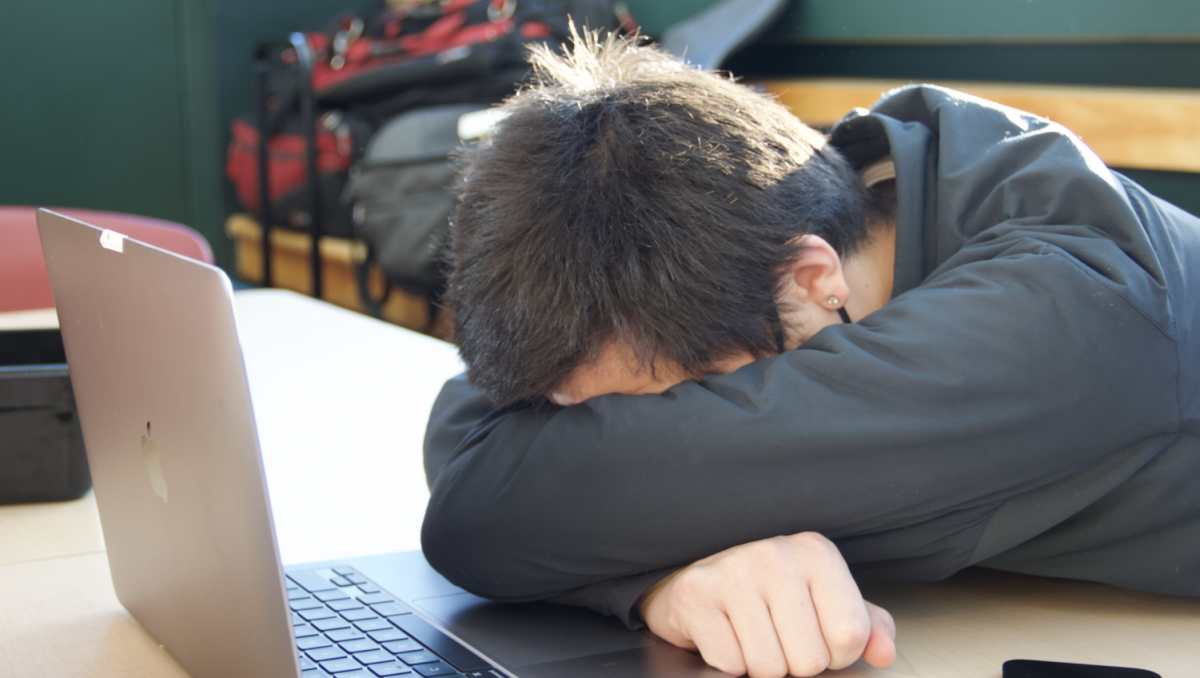Op-Ed: The Teen Sleep Deprivation Epidemic Needs a Cure
Students at the School report getting less than 8-10 hours of sleep per night.
“Oh look, it’s another student complaining about school start times.” It’s the most generic storyline in the book. However, it’s essential to take a step back and realize why students have continued to advocate for this recurring problem in our society.
If sleep deprivation weren’t an urgent problem to students, we wouldn’t be continuing to push for later start times. The fact of the matter is that the recommended amount of sleep for 13- to 18-year-olds ranges from 8-10 hours per night, according to the Centers for Disease and Control Prevention (CDC).
I know that many students and I are getting 8-10 hours of sleep on a school night. Morning after morning, I sluggishly wake up, sleep-deprived, struggling to get out of bed. Take the School’s 7:50 start time, for example.
A 7:50 a.m. start time is much earlier than many students can effectively handle. A student living 30 minutes away, for example, would have to leave their home by 7:20 a.m. Assuming that a student may also want to shower, eat breakfast, brush teeth, and get dressed, the student has to wake up some two hours before school starts.
In that case, to get the full recommended time of sleep, the student would have to go to bed at nearly 8:00 p.m. This situation leaves a minimal amount of time for students to finish their homework, eat, and spend time with their families. Even worse is for the kids packed with extracurricular end-of-day activities, such as school sports. It devolves into a never-ending cycle of trying to find the best way to budget time, only to realize that there is never enough.
For even those who contend that it’s possible to get the right amount of sleep and get to school early, there is one word that can defy your critiques; melatonin: a naturally-produced human hormone that makes it possible for humans to fall asleep.
According to a Psych News article, the human body begins to produce melatonin much later in a teenager’s life compared to both adults and younger children. It is simply and biologically impossible for teenagers to be on the “correct” sleep schedule agenda that many adults may push for.
Students everywhere, including here at the School, have written numerous articles discussing the delay of school start times. It’s a problem that has remained important to all teenagers. Not having enough sleep severely damages young minds. With teenagers constantly challenged mentally throughout high school and college years, it is of the utmost importance to get the correct amount of sleep.
Not getting enough sleep can also severely impact a teenager’s mood throughout the day. They may be prone to violent, angry outbursts that dampen the student’s overall learning process and limit what they can get out out of school.
It is indeed true that the mind is more fresh and ready to go in the morning compared to later in the day. However, it’s also true that a mind working off 5-6 hours of sleep is of much less help to the student. It is an issue that plagues both us as students and the learning community as a whole, and something must be done about it soon, even if it means changing school and sports schedules.






















































